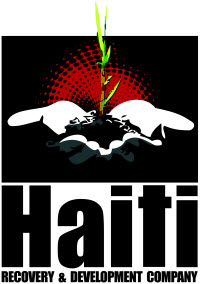Will 9 Million People Die of Cholera?
 Anger. Yes, anger is my first and deepest emotion with regard to Haiti’s recent Cholera outbreak. After all, Cholera is completely predictable. Cholera is also completely preventable. These facts are above reproach. Unfortunately, facts aside, Haiti is now forced to endure yet another round of catastrophic events, with no end in sight and 9 million people growing more fearful by the day. The question then is this, how many of Haiti’s 9 million will needlessly die from Cholera?
Anger. Yes, anger is my first and deepest emotion with regard to Haiti’s recent Cholera outbreak. After all, Cholera is completely predictable. Cholera is also completely preventable. These facts are above reproach. Unfortunately, facts aside, Haiti is now forced to endure yet another round of catastrophic events, with no end in sight and 9 million people growing more fearful by the day. The question then is this, how many of Haiti’s 9 million will needlessly die from Cholera?
Since anger, in and of itself, has never resolved an issue, let’s move on to addressing this tragedy with what is, and has always been, Haiti’s needed course of action – a national water treatment and sanitation policy. In support of such thinking, Medical News Today says it quite clearly in their recent report Haiti’s Water Needs:
“[S]ubstantial improvements in water quality and sanitation will be needed for Haiti before reliable interruption of cholera transmission can occur. … Hopefully, this latest threat for the people of Haiti might represent a turning point in their quest for access to the most basic of human needs – safe water”
When I founded HR&DC, in February of 2010, one of the first alliance partners I secured came from the water treatment world. My belief then, as now, is that potable water and sanitation is a critical path necessity if Haiti is ever to join and contribute to the modern world. I said as much in one of my first blog posts, and with recent events my belief in such thinking has only intensified.
In June 2010, as a result of numerous “in-country” conversations regarding Haiti’s water deficiencies, cost estimates were arrived at for 3 various sized water treatment facilities ranging from $250,000 – $2 million, depending on size and location. Our alliance partner in this process has built facilities all around the world, and, in a unique twist of fate, built the only operational concrete water treatment facility left standing in Port au Prince after the earthquake.
So, why hasn’t anything happened?
Funding provided to date for Haiti’s recent cholera epidemic is reported at $20,096,472 by USAID in Fact Sheet #5, Fiscal Year 2011, dated November 30, 2010. If preventative measures were taken in the immediate aftermath of January’s catastrophic earthquake, 10 new large water treatment facilities could have been built with the money spent fighting Haiti’s recent, preventable cholera epidemic.
Haiti’s Cholera epidemic could have been avoided, but it wasn’t.  The solution to avoid such misery and death is a simple one; a national water treatment and sanitation policy. In America, or many parts of the world for that matter, we wouldn’t deem it acceptable for our family or friends to drink from filthy ditches. We can do better in Haiti.
The solution to avoid such misery and death is a simple one; a national water treatment and sanitation policy. In America, or many parts of the world for that matter, we wouldn’t deem it acceptable for our family or friends to drink from filthy ditches. We can do better in Haiti.
So tell me, will you stand by and watch innocent people die of an avoidable disease? We will not. There are 9 million reasons for you to get involved. Can we count on you to help, and what do you suggest we do next?
4 Responses to “Will 9 Million People Die of Cholera?”
Search Our Site
Sign Up for Our Newsletter
Recent Posts

Dignity, Healing is a Two Way Street. Jim Lange HRDC
Haiti Trip (January ‘19); Day Five: I have arri...
Jim Lange works on Job Creation, Religion and Higher Education in Haiti
Haiti Trip (January ‘19); Day Four: Today, I tu...
Sunday in Haiti. Friendship, Simple Meal. Healing.
Haiti Trip (January ‘19); Day Three: It’s a bea...

[…] Read the original here: Will 9 Million People Die of Cholera? — The Haitian Renaissance […]
[…] This post was mentioned on Twitter by HaitianRenaissance, HaitianRenaissance. HaitianRenaissance said: http://thehaitianrenaissance.com/wordpress/9-million-people-die-cholera/ […]
Jim, you must follow the money trail. With $20MM donated by US Aid and how much donated by the US Federal Govt. where did the money go?
Fix this and you have a chance of helping Hatians help themselves.
Ray,
I fully understand the nature of your question, and the greater inference implied within your post. Yes, Haiti has been a black hole with regard to donations flowing into the country and rarely have any measurable results actually been achieved. Unfortunately, as long as there are well-connected individuals and/or organizations whose main objective is to make money, this scenario will never be eliminated.
As a matter of principle and policy, we will do our very best to improve this predatory situation by employing an unprecedented level of transparency with all of our transactions. Remember, I founded HR&DC with the intention of being the company’s steward for 20 years and then placing the company into a public trust for the Haitian people. As a result, our books will be available for public scrutiny and commentary. And while we will always try to do the right thing, any boast that we will eliminate human nature and greed, especially in Haiti, seems pointless and foolhardy.
What else would you suggest we do to improve this situation?